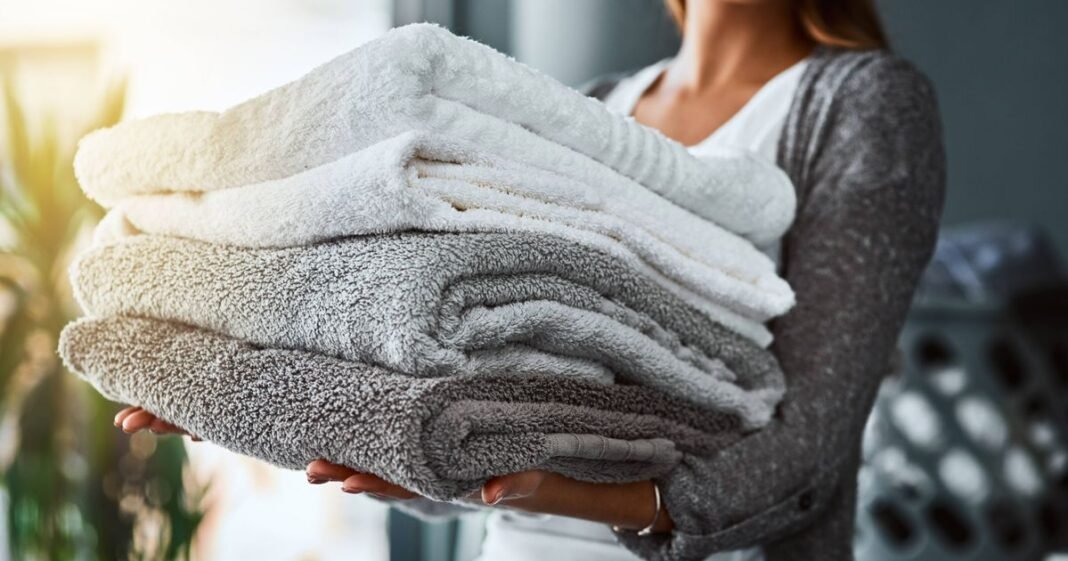How frequently do you launder your towels? This common household item often sparks debates, with some opting to wash after each use while others wait longer before tossing them in the laundry pile. Have you ever extended the use of your towels to squeeze out an extra go?
Recently, experts have delved into this debate, shedding light on the recommended frequency for washing this essential bathroom item. Surprisingly, a survey indicates that towels should be washed more frequently than many people assume.
A study conducted by rubbish clearance specialists at Clear It Waste unveiled that some household items can harbor more germs than a toilet seat, with towels being a notable example. In an average home, there can be over 200,000 different types of microbes present at any time, including bacteria and fungi. While Britons might be startled to learn that certain everyday items could be dirtier than a toilet seat, this reality remains.
Collaborating with Dr. Hana Patel, an NHS GP and Medico-Legal Expert Witness, Clear It Waste provided insights into the hidden bacteria residing on seemingly harmless bathroom towels. Astonishingly, research shows that a third of individuals only wash their towels once a month, which may not be adequate. Towels left in warm, humid bathrooms create an ideal breeding ground for bacteria and mold.
Although towels are primarily used to dry clean hands, they can harbor germs and mold due to the damp environment, as explained by Dr. Hana Patel. Clear It Waste recommends washing shower towels at least once a week, which translates to approximately every three to five uses.
Dr. Patel emphasized the importance of adhering to this guideline, even if towels appear clean. She warned about the health risks associated with dampness, stating that excessive moisture can facilitate the growth of harmful microorganisms. Mold and fungi, certain house dust mite species, bacteria, and viruses can thrive in such conditions, potentially leading to health issues.
Besides towels, other items in households often teem with more bacteria than a toilet seat, such as kitchen sponges. E. coli and Salmonella can thrive on sponges, necessitating regular replacement every one to two weeks or when they show signs of wear and tear.
Toothbrush holders and cases also provide a conducive environment for bacterial growth due to moisture accumulation. Dr. Patel highlighted that enclosed holders promote a 70% higher bacterial growth rate compared to open-air conditions. Therefore, it is crucial to ensure toothbrushes are dry before storage and routinely clean holders to prevent mold and bacteria buildup.
Reusable bottles are another culprit for bacterial proliferation, given their damp nature. These bottles can become breeding grounds for bacteria from saliva, food residues, and hands. To mitigate health risks, it is advisable to wash reusable bottles daily, paying particular attention to hard-to-reach areas where bacteria can thrive if not thoroughly cleaned.

